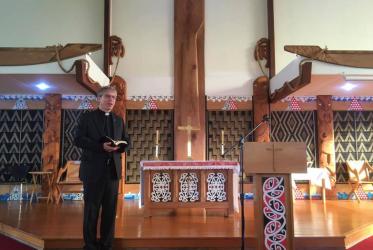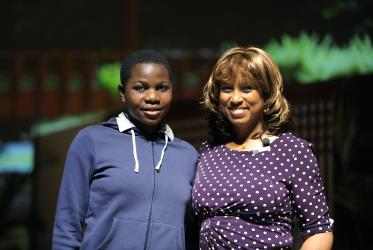Displaying 1 - 18 of 18
26 February 2020
CCIA meets in Brisbane with focus on Pacific regional priorities
19 February 2020
A voice for peace from Down Under
10 July 2017
WCC general secretary visits Aotearoa New Zealand
10 October 2016
New Executive Committee members elected in Trondheim
28 June 2016
New video presents Ecumenical Advocacy Alliance’s call to action
13 January 2016
WCC Executive Committee speaks out on migrant crises
12 June 2015
Religious leaders urge a ban on fully autonomous weapons
02 April 2015
Issues of justice in focus at WCC Busan assembly
06 November 2013
Consultation brings rights of religious minorities into focus
18 September 2013










